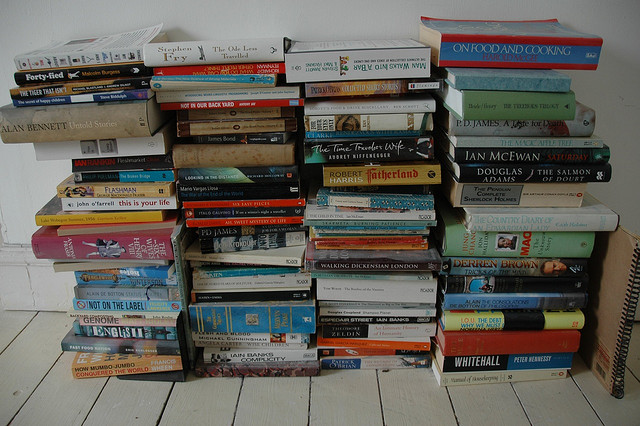Buzzfeed is overrun with checklists of books to read in your 20s—supposed poignant, classic novels that will change your worldview with a powerful resonance of meaning. What makes these books so timely and relatable however, is one common theme: the transition from youth to adult; a loss of innocence; a murky struggle to define ourselves. Free of Young Adult titles, this is a ‘mature’ list of books to make you “feel”.
Holden Caulfield’s ‘stick it to the man’ attitude in Catcher in the Rye epitomises teenage angst. The metaphor of Caulfield saving small children from plunging off a cliff from their oblivious frolicking in a field of rye is overused symbolism representing a maturing adult perspective whilst desiring to maintain childish innocence. If you are reading Catcher in the Rye for the first time in your 20s, you will love and hate Holden Caulfield. You will appreciate his gall and sassy attitude whilst simultaneously wanting to rattle some sense and perspective into his self-oriented worldview. This book is short and excellent for public transport—particularly if you like an impromptu book club with strangers. For a modern, what is apparently not a retelling (although it feels like plagiarism), enjoy the Spectacular Now by Tim Tharp which was recently adapted to screen for the 2013 Sundance Film Festival.
To not cry and empathise with at least one character in Stephen Chobsky’s Perks of Being a Wallflower must be a readership anomaly. Perks is a sweet epistolary novel that follows the eponymous wallflower “Charlie” throughout his freshman year of high school. Charlie is caught between the pages of his own novel, trying to live his life and hide from reality. Within this book of first dates, sex, drugs, friends, family and the Rocky Horror Picture Show, you will find books to read, songs to sing and life lessons to live. I will even admit, the movie is adorable, although it misses a substantial amount of (political) relationship development within Charlie’s family.
The Bell Jar has been considered by some critics to be Sylvia Plath’s suicide note (she completed suicide only one month after its publication). It features Esther Greenwood, a young fashion journalist who tries to make her way in the big city. It showcases her struggles, then downward spiral into depression with a misunderstood and stigmatised mental illness. Most certainly not an uplifting read, the Bell Jar speaks a crisp, yet melancholy truth about how we identify with the positive and negative within our own souls. The Bell Jar is often perceived as a psychological exploration of the female psyche, but more than that, it is a feminist classic that once read, you will wish you had read it sooner.

Jasper Jones by Craig Silvey has been awarded the accolade of being Australia’s To Kill a Mockingbird. Regardless, with pitch perfect dialogue and absolute narrative traction, Jasper Jones is finding its justified place as an Australian classic. Jasper Jones, an outcast from a regional mining town knocks on the window/life of bookish Charlie Bucktin and with the rattling of his windowpane, all Charlie’s constructions of trust are shaken. With Jasper Jones we are able to learn that sorry is a lot of things, and that the world isn’t romantic or fair, but by knowing and understanding this, we are able to triumph.
In another autobiographical account, Jeanette Winterson’s Oranges are Not the Only Fruit is a heart-wrenching account of her struggle with sexuality as the adopted daughter of missionary evangelists. The writing of Winterson’s debut is surreal as you battle anecdotes with incredulity and try to decipher what is fiction, what is her reality, and whether a mother would really burn all your books (she would). The transition from “Chosen one” in Winterson’s mam’s eyes to lesbian “spawn of the devil” is an unnecessary additional stress to adolescent angst, and one that should be read slowly, with tender compassion. Winterson published an autobiographical account last year that parallels the plot of Oranges almost identically. If non-fiction is your preferred reading style, Why Be Happy When You Could Be Normal? the story of Winterson’s mam, sitting on a doorstep waiting for Armageddon, comes highly recommended.
There is potential that Bukowski was parodying Salinger’s classic with his novel Ham on Rye. Regardless, this potentially autobiographical tale (although Bukowski would hate that assumptions are being made about his life) is violently striking and riddled with zits as it follows Henry Chinaski’s struggles with his father. Bukowski writes a bitter observation, with dark humour, and too much pus. The writing seems simple and straightforward, but it is the complex emotional subtext that makes Ham on Rye a powerful and understated commentary. Read this to feel your gut twist in empathy when long words are evading your understanding.
The above titles could be discredited with the classification of “cliché,” but honestly, most things become cliché when they are true for many people. Do not judge a book by its reputation, you may find a little bit of self amidst these pages.
By Emily Westmoreland
Cover photograph by Henry Bloomfield, via Flickr


